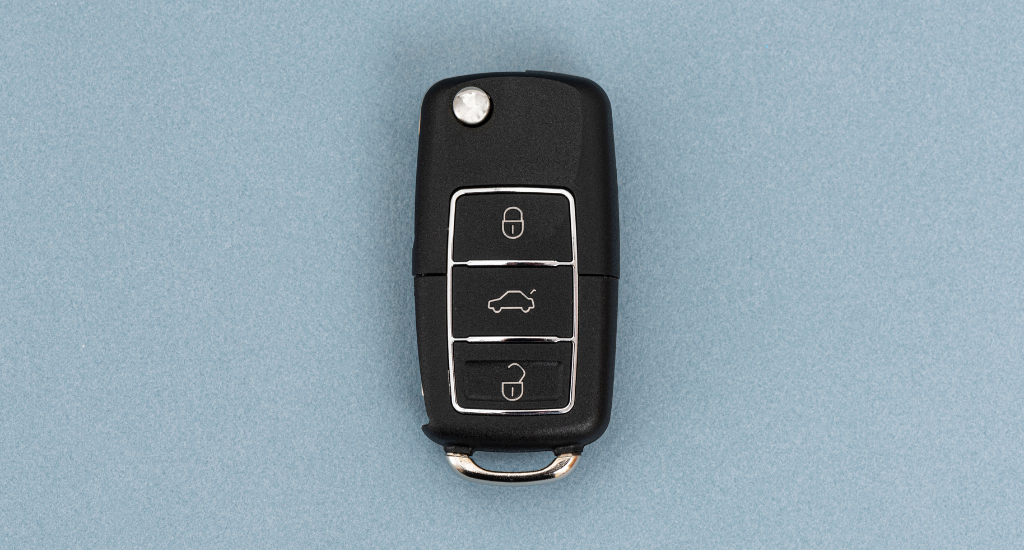
- By ROLTCOM
- In Technology
Transponder Keys – How They Work and Common Issues
In an era where technology constantly reshapes our daily lives, even the simplest things, such as car keys, have undergone remarkable transformations. Gone are the days of traditional mechanical keys, replaced by the advanced security and convenience offered by transponder keys. In this article, we will delve into the intricacies of transponder keys, exploring how they work, their benefits, common issues, troubleshooting solutions, maintenance tips, and even glimpses into the future of car key technology.
Brief Introduction to Transponder Keys
Transponder keys are a testament to the evolution of automotive security. Unlike traditional keys that merely engage the ignition and unlock the doors, transponder keys go beyond basic functions. They integrate a small microchip, called a transponder, that communicates with a car’s immobilizer system. This technology emerged as a response to the increasing incidence of car thefts and break-ins.
How Transponder Keys Work
| Key Components and Their Roles | The core components of a transponder key consist of a transponder chip and the car’s immobilizer system. The transponder chip, usually embedded within the key’s plastic head, holds a unique identification code. The car’s immobilizer system, located near the ignition, comprises a receiver module and an electronic control unit (ECU). The ECU processes the data sent by the transponder chip. |
| Key Authentication Process | When you insert the transponder key into the ignition, the car’s immobilizer system sends a radio frequency signal to the transponder chip. The chip responds by emitting its unique code. The receiver module within the immobilizer system captures this code and transmits it to the ECU. The ECU decrypts the code, verifying its authenticity. If the code matches the one stored in the system, the immobilizer system grants access to the vehicle and enables ignition. |
The Benefits of Transponder Keys
Enhanced Security Features
Transponder keys provide a robust shield against car theft. Since each transponder chip holds a distinct code, thieves cannot hotwire or bypass the ignition. This feature drastically reduces the chances of unauthorized access.
Furthermore, transponder keys generate unique codes each time they communicate with the immobilizer system. This dynamic coding makes it nearly impossible for hackers to intercept and replicate the signal, ensuring an additional layer of security.
Convenience and User-Friendliness
Transponder keys offer unparalleled convenience. Many modern vehicles equipped with transponder technology provide keyless entry and ignition. With the key in your pocket or bag, you can unlock the doors with a mere touch of the handle and start the engine by pressing a button. This eliminates the hassle of fumbling with keys and enhances the overall driving experience.
Additionally, transponder keys significantly reduce the risk of lockouts. Since the key’s code must match the one stored in the immobilizer system for the car to start, accidental lockouts due to leaving the keys inside the vehicle become less likely.
Common Issues with Transponder Keys
Despite their advanced technology, transponder keys are not exempt from occasional problems. Here are some common issues that vehicle owners might encounter:
| Key Communication Problems | Signal interference can disrupt the communication between the transponder key and the immobilizer system. This interference might arise from electronic devices or structures that obstruct the signal path. Additionally, if the battery within the transponder key is depleted or the transponder chip malfunctions, the key might not communicate effectively with the car’s system. |
| Programming and Initialization Issues | Incorrect programming methods can lead to transponder key problems. If the key is not properly initialized and paired with the immobilizer system, it will fail to function. Mismatched codes, either during initial programming or subsequent reprogramming attempts, can render the key ineffective. |
| Key Replacement and Duplication Challenges | Replacing or duplicating transponder keys can be a complex process. While authorized dealers have the necessary tools and expertise to create new transponder keys, third-party services might lack the required equipment. Cost considerations can also influence a vehicle owner’s choice between these options. |
Troubleshooting and Solutions
Diagnosing Transponder Key Problems
To troubleshoot transponder key issues, start by testing the battery within the key. A weak battery can hinder the key’s communication with the immobilizer system. If the battery is fine, check the transponder chip for damage. Additionally, verify that the immobilizer system is functioning correctly and that there are no signal-blocking objects near the key or receiver.
Reprogramming Transponder Keys
If you suspect programming issues, refer to your vehicle’s manual for reprogramming instructions. Some cars allow for DIY reprogramming, while others might require professional assistance. When in doubt, it’s advisable to seek the help of a qualified locksmith or the vehicle manufacturer’s service center.
Key Replacement Options
In cases of lost or malfunctioning keys, consider the available replacement options. While authorized dealers can provide accurate replacements, they might be costlier than third-party services. Be cautious when choosing third-party options and ensure they have the necessary expertise and equipment for transponder key replacement.
Maintenance and Care Tips
✔ Protecting the Transponder Key
To ensure the longevity of your transponder key, protect it from physical damage. Avoid dropping or subjecting it to excessive force. Additionally, keep the key away from water and extreme temperatures, as these conditions can damage the transponder chip and battery.
✔ Battery Replacement and Testing
Regularly check the battery’s condition and replace it as needed. A weak battery can lead to communication issues between the key and the immobilizer system. Testing the battery’s voltage using a multimeter can help determine its health.
✔ Regular Checks on the Immobilizer System
Periodically inspect the immobilizer system to ensure it’s functioning correctly. If you notice any warning lights or unusual behavior, consult your vehicle’s manual for guidance or visit a professional technician.
Future Trends in Car Key Technology
As technology continues to advance, car key technology is expected to evolve further. Advancements in security measures, such as improved encryption algorithms and biometric authentication, could redefine how transponder keys enhance vehicle security. Integration with smart devices and apps might enable users to control their vehicles remotely and receive real-time notifications.
Embrace Secure and Seamless Mobility

Transponder keys have revolutionized automotive security and convenience. Their dynamic communication process and unique coding system make them highly secure against theft. While they bring immense benefits, common issues like communication problems, programming challenges, and key replacement concerns can arise. By understanding these aspects and following maintenance practices, vehicle owners can ensure their transponder keys operate flawlessly. As technology marches forward, we can anticipate even more sophisticated developments in car key technology, paving the way for safer and more efficient driving experiences.





